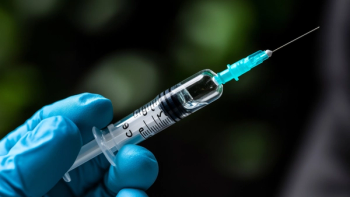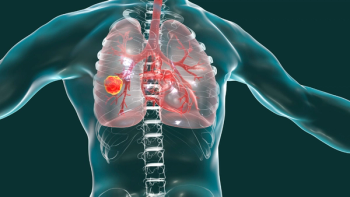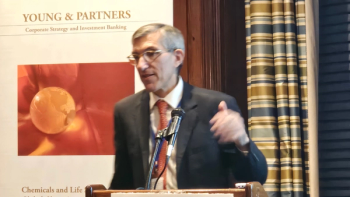
The Varipulse platform includes a single-device workflow with minimal to zero fluoroscopy requirements, real-time imaging, and lesion tagging for paroxysmal atrial fibrillation.

The Varipulse platform includes a single-device workflow with minimal to zero fluoroscopy requirements, real-time imaging, and lesion tagging for paroxysmal atrial fibrillation.

At the Financial Times’ Global Pharma and Biotech Summit 2024, a panel discussed the potential of mRNA technology in developing cancer vaccines amid distrust from the public.

At the Financial Times’ Global Pharma and Biotech Summit 2024, a panel discussed ways to prepare for the high number of incoming patent expiries and how to protect key drugs.

At the Financial Times’ Global Pharma and Biotech Summit 2024, a panel discussed initiatives aimed at bringing cell and gene therapies to low- and middle-income countries.

At the Financial Times’ Global Pharma and Biotech Summit 2024, a breakout panel discussed how dealmaking remains vital for biopharma companies facing pipeline and revenue pressures.

At the Financial Times’ Global Pharma and Biotech Summit 2024, Christophe Weber, president and CEO, Takeda, discusses how trust and collaboration between the biopharma industry and stakeholders can be implemented to support successful healthcare transformation.

Ron Lanton, Partner, Lanton Law, discusses the legal implications of the FDA’s broad label challenge to PD-1 inhibitors for gastric cancers.

Results from the VENTURE Phase II trial and a Phase I oral formulation study found that VK2735, a novel a dual GLP-1 and GIP receptor agonist, demonstrated promise in treating obesity.

Results from Part I of the Phase III ESSENCE trial found that Wegovy 2.4 mg achieved a 37% improvement in liver fibrosis without worsening steatohepatitis in patients with metabolic dysfunction-associated steatohepatitis compared to 22.5% in the placebo group.

The subcutaneous form of Leqembi was previously granted Fast Track designation by the FDA to treat mild cognitive impairment or mild dementia associated with Alzheimer disease based on data from the Clarity AD study.

The deal is expected to leverage EvolveImmune's T-cell engager EVOLVE platform to develop novel antibody-based therapies for solid and hematologic malignancies.

The trials will investigate datopotamab deruxtecan in combination with treatments including rilvegostomig, osimertinib, and chemotherapy in patients with nonsquamous non-small cell lung cancer.

Accelerated approval is based on results of the ASC4FIRST Phase III trial, which demonstrated Scemblix's superior efficacy in achieving major molecular response compared to standard of care tyrosine kinase inhibitors in patients with newly diagnosed Philadelphia chromosome-positive chronic myeloid leukemia in chronic phase.

Roxybond is the and only FDA-approved abuse-deterrent immediate-release 10 mg oxycodone formulation designed to reduce abuse of pain medication via intranasal and intravenous routes.

CMG1A46 is currently being developed for B cell-driven autoimmune diseases, primarily systemic lupus erythematosus and lupus nephritis.

Collaboration seeks to advance the treatment of non-small cell lung cancer by combining Keytruda with Moderna’s novel neoantigen therapy, which has shown positive results across cancer types.

Acquisition includes Aliada’s lead asset, ALIA-1758, which is being developed for the treatment of Alzheimer disease.

Under terms of the deal, Richter will receive an upfront cash payment of $25 million, along with potential future development, regulatory, and commercialization milestones.

Growth is expected due to increased instances of chronic diseases such as cancer and Alzheimer disease.

Despite a recent FDA Complete Response Letter issued to Lykos for midomafetamine capsules for the treatment of post-traumatic stress disorder, experts believe that the future is bright for psychedelic drugs that treat mental health conditions.

Najat Khan, chief R&D officer, chief commercial officer, Recursion, and Fred Hassan, director, Warburg Pincus, discuss how artificial intelligence can help reduce healthcare costs at the 20th Annual Young & Partners Pharmaceutical Executive Summit held at the Yale Club of New York.

Under terms of the deal, Merck will provide an upfront payment of $30 million, with potential milestone payments of up to $1.3 billion for the Yale University spinout that develops targeted therapies for cancer.

Peter Marks, director, Center for Biologics Evaluation and Research, FDA, presented the keynote presentation on the future of gene therapy as part of the 20th Annual Young & Partners Pharmaceutical Executive Summit held at the Yale Club of New York.

Under terms of the deal, Sanofi would sell a 50% controlling stake in Opella to CD&R, while remaining a significant shareholder.

The expanded indication of Selarsdi for the treatment of diseases such as psoriasis, psoriatic arthritis, ulcerative colitis, and Crohn disease is expected to support the official launch early next year.

Regulatory action marks the fourth aesthetic indication and the first beyond facial treatments for Botox.

Vyloy is the first CLDN18.2-targeted therapy for advanced gastric and gastroesophageal junction adenocarcinoma to be approved in the United States.

Priority Review status for GSK’s New Drug Application for gepotidacin was based on promising results from the Phase III EAGLE-2 and EAGLE-3 trials, which demonstrated non-inferiority to nitrofurantoin in uncomplicated urinary tract infections.

Expanded approval of Lumryz offers a once-nightly treatment option for younger patients, eliminating the need for traditional narcolepsy treatments that often require multiple doses throughout the night.

Partnership is expected to develop radioligand therapies based on lead-212 alpha-emitting isotopes, which offer the opportunity to destroy cancer cells with minimal damage to healthy tissue.